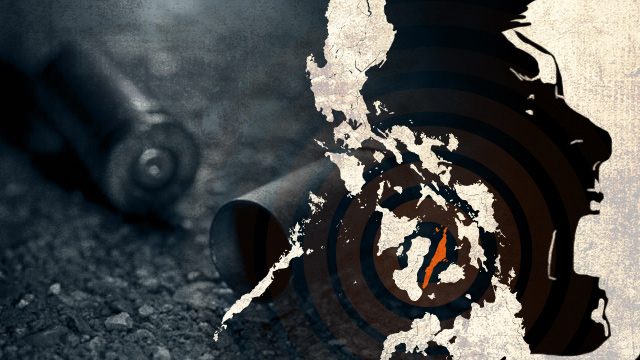SUMMARY
This is AI generated summarization, which may have errors. For context, always refer to the full article.

MANILA, Philippines (UPDATED) – Security guard Jonathan Sanchez admitted to fatally shooting father and son Goering Paderanga Sr and Gerik Paderanga, both lawyers, near the victims’ office in Cebu City on December 22, 2016.
That time, Sanchez was on duty, guarding a construction site near the Paderangas’ office. There was already a dispute then which involved the elder lawyer, who had complained that the construction activity was blocking the road and caused damage to their property.
When Sanchez admitted he gunned down the Paderangas, he told media, in Bisaya: “They blocked the mixer from passing through, so there.”
Sanchez is currently jailed but has yet to be arraigned. There is a pending motion filed by his public lawyers to have him undergo a psychiatric examination to determine if he is fit to stand trial.
His counsels from the Public Attorney’s Office (PAO) in Cebu submitted to the court a medical abstract from 2015 which said Sanchez has “a history of substance-induced psychotic disorder.”
But lawyer Ian Sapayan, who is also the spokesperson for the Paderanga family, told Rappler in a phone interview that the suspect is merely using the insanity defense to get out of liability.
Insanity defense in PH law
The insanity defense is a move used by suspects who claim they were not in their right minds when they committed a crime and should therefore be absolved.
Article 12 of the Revised Penal Code exempts an insane person from criminal liability, except if the person “acted during a lucid interval.” The latest known success of an insanity plea in the Philippines was decided by the Supreme Court just last year, when the High Court reversed judgment and acquitted Solomon Verdadero for the crime of homicide.
The SC ruled that there was enough evidence to prove Verdadero was having a relapse of schizophrenia when he stabbed to death a man who had reported him to the police for stealing the fan belt of their irrigation pump.
In 2000, the SC gave merit to the insanity plea of a certain Roberto Estrada of Dagupan, who was already convicted by a trial court for murder. The High Court remanded the case and ordered the lower court to conduct a mental examination and review the case.
In 2012, the SC junked the insanity plea of Edwin Isla for the crimes of rape and frustrated murder. The High Court said then that Isla failed to prove he was “insane” when the crime was committed, noting that the psychiatric examinations were only conducted after the crime.
It’s also the same reason why the SC thumbed down in 2000 an insanity plea from a parricide convict who said he was diagnosed with schizophrenia after the crime. The High Court also noted then that schizophrenics “may have lucid intervals during which he may be able to distinguish right from wrong.”
No getting away
Sapayan pointed out that under Philippine laws, a suspect who can prove he is insane does not really get away with everything.
“Hindi siya ultimate dismissal. He still did something wrong. Sa mental hospital ang diretso,” he said.
(It’s not ultimate dismissal. He still did something wrong. He goes straight to the mental hospital.)
Indeed, Article 12 of the Revised Penal Code says that a person who is proven insane shall be under “confinement in one of the hospitals or asylums established for persons thus afflicted, which he shall not be permitted to leave without first obtaining the permission of the same court.”
When the SC acquitted Bascos in 1922, they sent him to San Lazaro Hospital and he was barred from leaving unless approved by the court.
Will it work?
In the case of the Paderangas’ murder, Sapayan noted that when Sanchez’s wife raised the psychiatric issue to PAO lawyers, she was referring to a sleeping problem that occurred after the killing.
“I was there when the wife talked to the PAO lawyers. Hindi na raw makatulog, laging tulala. After na ‘to ng killing. Sino ba’ng makakatulog kung pumatay ka?” Sapayan said.
(I was there when the wife talked to the PAO lawyers. The wife said he couldn’t sleep and kept staring into space. But this was already after the killing. Who would be able to sleep after killing someone?)
The 2015 medical abstract already mentions a sleeping disorder. It is unclear from the documents whether Sanchez was treated over time.
The Paderanga camp has already filed its opposition to the motion for Sanchez to undergo a psychiatric test.
If the court rules that Sanchez is not fit to stand trial, Sapayan said the suspect may not be interrogated further.
Will the insanity defense work this time? – Rappler.com
Add a comment
How does this make you feel?
There are no comments yet. Add your comment to start the conversation.